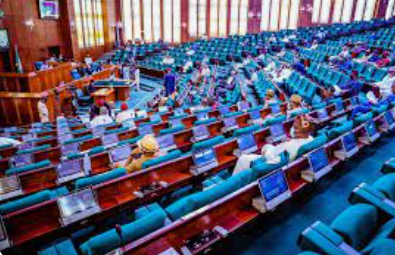The House of Representatives has called for the immediate suspension of the Central Bank of Nigeria’s (CBN) recent policy increasing Automated Teller Machine (ATM) transaction charges and discontinuing free ATM withdrawals for customers using other banks’ ATMs.
The lawmakers argued that the policy imposes an undue financial burden on Nigerians who are already struggling with economic hardships.
The Green Chamber noted that the banking sector continues to record significant profits, making it unjustifiable to impose additional charges on consumers without a corresponding improvement in service delivery or banking infrastructure.
The House warned that the new charges could undermine financial inclusion by discouraging low-income earners from accessing banking services, which contradicts the CBN’s stated financial inclusion agenda.
This decision followed a motion moved by Hon. Marcus Onobun during the plenary session on Tuesday. He highlighted that the CBN had recently revised ATM transaction fees under Section 10.7 of the CBN Guide to Charges by Banks, Other Financial, and Non-Bank Financial Institutions.
READ ALSO: CBN Announces New Daily Transaction Limit For POS Agents
The section, last reviewed in 2019, had previously reduced ATM transaction fees from N65 to N35 per transaction.
According to Onobun, the new CBN policy allows customers to withdraw from their own banks’ ATMs free of charge. However, for customers using ATMs of other banks within the bank’s premises, a fee of N100 per N20,000 withdrawal would apply.
Additionally, customers withdrawing from ATMs located outside bank premises, such as malls, marketplaces, and public places, would face a N100 charge plus an additional N500 surcharge.
In its resolutions, the House urged the CBN to halt the implementation of the policy until proper consultations are held with the relevant committees on banking, finance, and financial institutions.
READ ALSO: Protest Hits Ondo Over Abduction Of Nine Surveyors
The lawmakers emphasized that Nigerians are already burdened by multiple economic challenges, including high inflation, rising fuel prices, increased electricity tariffs, and numerous banking charges that significantly reduce disposable income and negatively impact the economic well-being of citizens.
The House stressed that the government has a responsibility to protect its citizens from exploitative financial practices that could lead to further economic distress.
The lawmakers reiterated their commitment to ensuring that banking policies are fair, transparent, and beneficial to the general populace.

